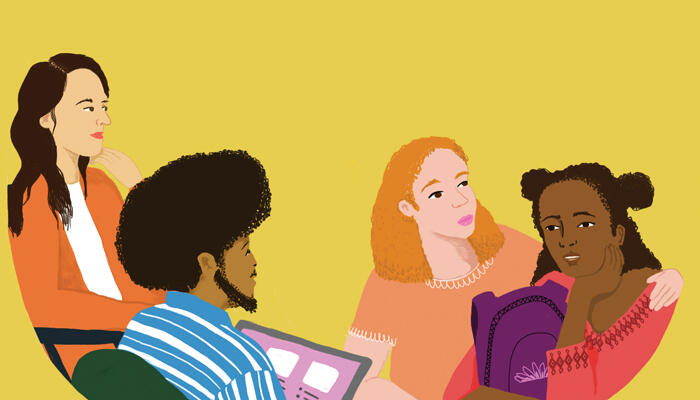
Q: I’m concerned that all of our professional learning this year is going to be focused on test prep and how to make up for lost time. How can I help my principal understand that this might not be the best focus for us?
We are all navigating challenging times. Before students are expected to focus on and meet academic goals, it’s imperative that educators and schools ensure that all students feel safe and valued. With that in mind, propose a meeting with your administration that multiple stakeholders—including educators, students and caregivers—can join. Outline your concerns and offer possible solutions. One such solution might be a process to gather more information and help finalize a professional learning plan centered on prioritizing students’ safety and well-being. This process could entail forming a group to engage families and students to learn what they need, what concerns they have, what they want out of the school year and how they want to be supported. The data collected from this group, along with feedback from other educators, could then be used to create a proposal for a professional learning plan that addresses multiple areas of concern. A collaborative process will help everyone agree on the year’s professional learning goals and feel confident their needs will be met.
The coronavirus has severely limited my students’ ability to see how they can get involved in our democratic process during this election season. How can I help them understand that they still have a voice?
During this challenging time, students can still find ways to engage in our diverse democracy. First, explicitly teach about the history of voting rights, polarization and voter suppression. These topics are always an important part of civics education, but students may better see their role in this history when they learn how current voter suppression efforts are targeting young people. “Uplifting the Student Vote,” later in this issue, explains these efforts in more depth. For classroom resources on these topics, Teaching Tolerance’s Future Voters Project is a great place to start. Next, be sure to look beyond the presidential race. Have students research local and state elections to learn what kinds of decisions these officeholders make and how these decisions affect them, your school and your community. Finally, task your students to do something with all their new knowledge. They can design a multifaceted virtual campaign that educates their community about what they learned, what the issues are and where and how to vote. They can also organize against voter suppression by supporting voter registration drives (online or through school). This approach will help students realize that their role in our democracy doesn’t have to be diminished, even during this difficult time.